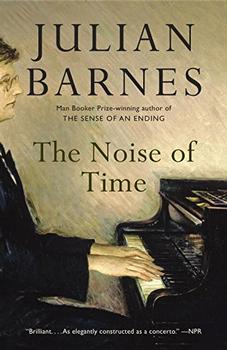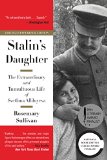Summary | Excerpt | Reviews | Beyond the book | Read-Alikes | Genres & Themes | Author Bio

A subtle, brilliantly plotted story set the twilight years of Communist East Germany.
In the twilight years of Communist East Germany, Bruno Krug, author of a single world-famous novel written twenty years earlier, falls for Theresa Aden, a music student from the West. But Theresa has also caught the eye of a cocky young scriptwriter who delights in satirizing Krug's work.
Asked to appraise a mysterious manuscript, Bruno is disturbed to find that the author is none other than his rival. Disconcertingly, the book is good - very good. But there is hope for the older man: the unwelcome masterpiece is dangerously political. Krug decides that if his affair with Theresa is to prove more than a fling, he must employ a small deception. But in the Workers' and Peasants' State, knowing the deceiver from the deceived, the betrayer from the betrayed, isn't just difficult: it can be a matter of life and death.
This subtle, brilliantly plotted story will remind many readers of von Donnersmarck's Oscar-winning film The Lives of Others.
By creating a charming narcissist who has gotten himself into a troubling scrape, Philip Sington allows us an intimate and evolving portrait of life behind the Iron Curtain. Sington’s novel contemplates serious subjects, but the narrative is often light-hearted and funny...continued
Full Review
 (693 words)
(693 words)
(Reviewed by Sarah Sacha Dollacker).
The fictional character of Bruno Krug gained international fame with a literary blockbuster The Orphans of Neustadt, but when we meet him at the beginning of his story, he is busy writing simple stories - called the Factory Gate Fables - about life in Actually Existing Socialism. These stories represent typical literature in the U.S.S.R and Soviet-occupied countries in the mid-20th century that correspond with the theory of Socialist Realism. Socialist Realism extends to other art forms but was officially adopted by the Congress of Soviet Writers in 1934 and codified the state's expectations for writers. Socialist Realism demanded that authors create literature that depicted man's struggle towards socialist progress in pursuit of a better ...

If you liked The Valley of Unknowing, try these:

by Julian Barnes
Published 2017
A compact masterpiece dedicated to the Russian composer Dmitri Shostakovich: Julian Barnes's first novel since his best-selling, Man Booker Prize–winning The Sense of an Ending

by Rosemary Sullivan
Published 2016
A painstakingly researched, revelatory biography of Svetlana Stalin, a woman fated to live her life in the shadow of one of history's most monstrous dictators—her father, Josef Stalin.